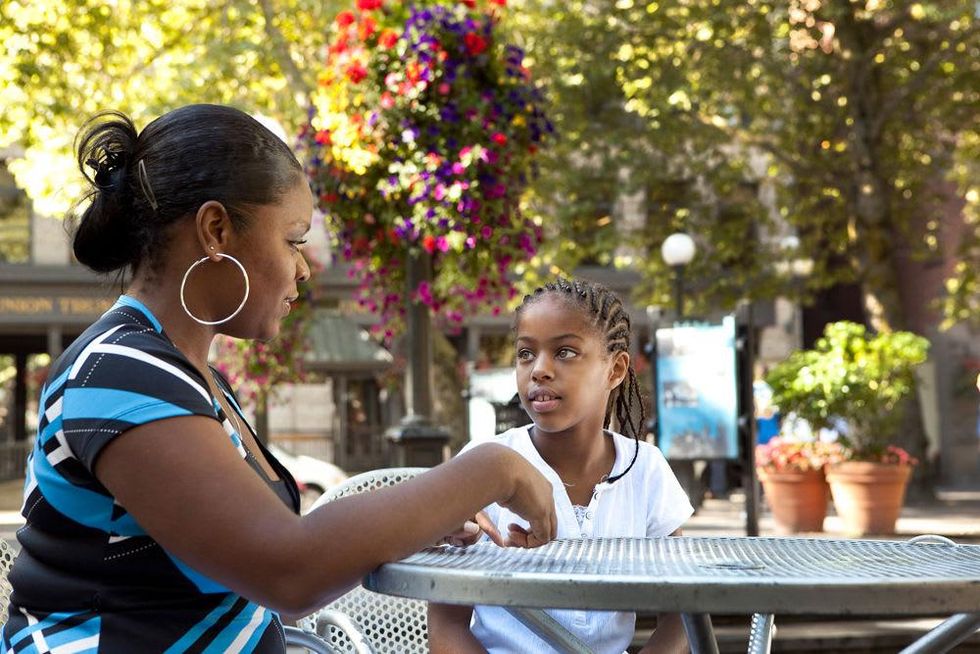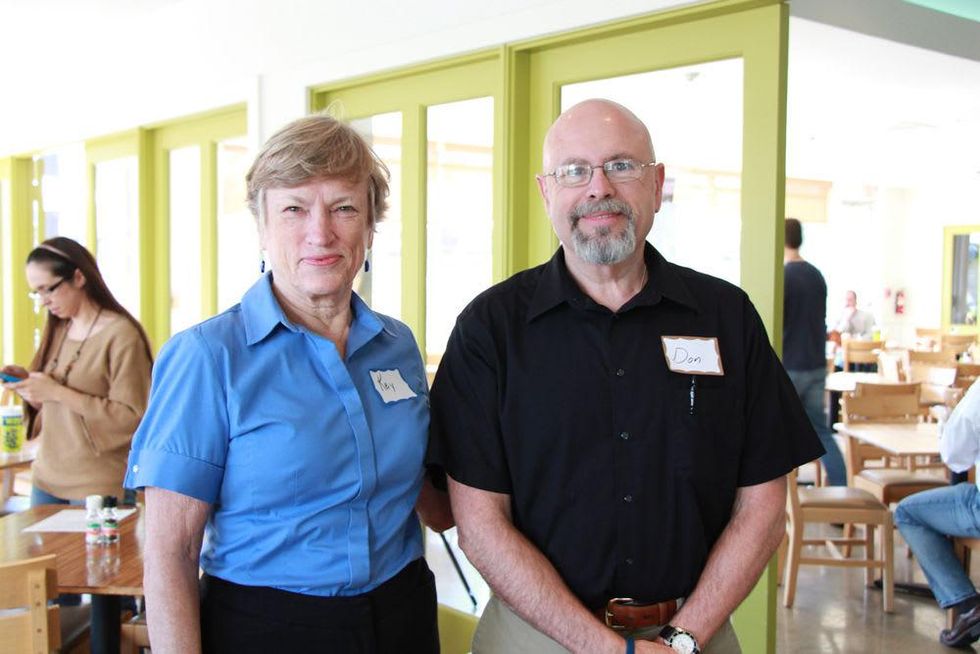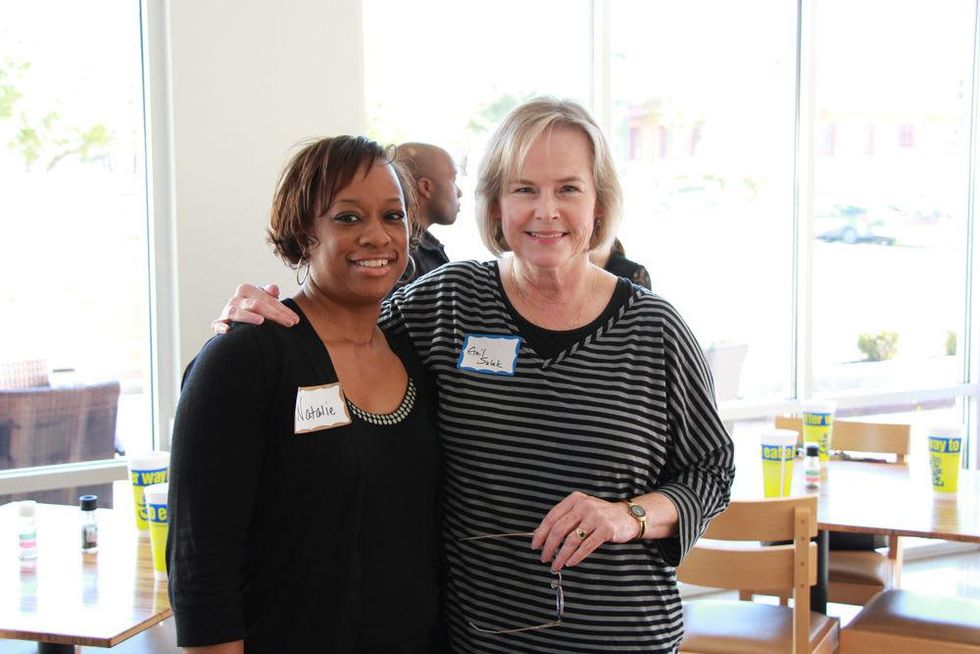Culture of Giving
CASA helps families stay together during National Foster Care Month
May is National Foster Care Month, following on the heels of April's National Child Abuse Prevention Month. In this country, during any given month there are more than 380,000 children under age 18 in the foster care system. In the Austin area alone, there were approximately 1,950 children who were involved with both the court system and Child Protective Services due to alleged abuse or neglect in 2012, coming from neighborhoods all across our community.
CASA of Travis County (Court Appointed Special Advocates) is a nonprofit organization that speaks up for these children who have been abused or neglected, by empowering community volunteers to act as their advocates in the court system. But children in the system aren't always those who have been removed from their homes — around 20 percent of cases are children who have remained in their homes, with families who have been ordered by the court to complete services to fix the issues that brought Child Protective Services into their homes to begin with.
Preventing these families from breaking up, and the children from entering the foster care system, is one of CASA's primary goals. The Court Ordered Services program helps to attain that goal. CultureMap spoke with CASA Executive Director Laura Wolf about the program, and advocating for neglected or abused kids.
CultureMap: Can you tell me a little about Child Abuse Prevention Month and how CASA works to prevent child abuse?
Laura Wolf: National Child Abuse Prevention Month each April is a time to speak up against child abuse and neglect and promote the social and emotional wellbeing of children and families in our community. At CASA, we advocate for children who have already suffered abuse or neglect in order to help them live happier, safer lives and help end the cycle of abuse and neglect for their family.
We also, as in the case of Court Ordered Services cases, help prevent further trauma for children that could occur with removal from their homes and placement into the foster care system. In cases where children can be safely placed with family members or family friends, we try to urge that outcome.
CM: Tell us a little about your Court Ordered Services program.
LW: Children who come to the attention of Child Protective Services (CPS) have already experienced abuse or neglect; however, removal of a child from his home and familiar surroundings, especially when followed by placement in foster care with strangers can be just as traumatizing, if not more so, than the situation that brought the child to CPS's attention in the first place.
Fortunately, when there is a parent who is willing and eager to begin services that will correct the problems in the home and there is supportive and protective family or friends who are willing to keep the children safe, it can be possible to keep kids from having the State of Texas as their parent, even on a temporary basis.
These are "Court Ordered Services" (COS) cases, in which CPS and the courts are involved, but the State has not yet been ordered to take custody of the children. In Austin, our judges very much value CASA's input on these kinds of cases and in fact, in 2012, roughly 20 percent of the children for whom CASA advocated were in COS cases. These cases play an important stabilization role for children, helping their families heal and grow strong without the anguish of removal from familiar surroundings and entry into the foster care system.
CASA can play a major role in these cases, from ensuring that parents are making necessary changes and children are receiving the care they need to successfully close the case, to, at times, helping determine if progress is not being made and safety continues to be a concern within the primary family so that Temporary Managing Conservatorship must be sought with the possibility that the children might need to be moved into foster care.
CM: Why is this such a focus for CASA?
LW: Sometimes when a judge gets involved in a family’s life because of allegations of abuse or neglect, that is the “wake-up call” that parents need to finally take that major step of changing their lives and addressing the issues that may make their children unsafe in their care. Often that court involvement comes when the State of Texas takes “Temporary Managing Conservatorship” of the children — meaning that the State is now the parent of those children.
But governments don’t usually make very good parents, so if a court and CPS and CASA can be involved with a family without the State having to become the children’s parent, then maybe the family can heal and the children can be safe through less dramatic means. Court Ordered Services cases are an area of focus for CASA of Travis County because we recognize that a cookie-cutter, one-size-fits-all approach to meeting the needs of individual children and their parents is not always effective.
The judges, CPS, CASA and all the other parties in this county work hard together to try to put together plans and services that take into account the specific needs of particular children, youth and families.
CM: What can the citizens of Austin do to help?
LW: At least 650 [of the 1,950 children in the system] still needed a dedicated CASA volunteer to speak up for their best interest. Many people may think of child abuse as a problem they can’t do anything about, but CASA is the answer to that. Volunteering with or supporting CASA of Travis County is a way for everyone in Austin to help some of the most vulnerable members of our community, children who’ve been abused or neglected, to heal and thrive in safe, permanent loving homes.
CASA volunteers come from every walk of life and share a commitment to improving children’s lives, a willingness to learn, and an open mind towards life experiences different from their own.
CASA volunteers
Are you interested in volunteering with CASA on behalf of a child? CultureMap also spoke with two CASA volunteers to get a taste of what it's really like working with the organization and these kids.
Gail Sulak was a social worker for nearly 40 years before becoming a CASA volunteer in 2011 after retirement. "I was aware of the tremendous work CASA volunteers do for children in the Child Protective Services and court system and felt it could be both helpful to others and educational for me," she says. "I think one of the best gifts of CASA is the gift of time and attention we can provide to a case when the many dedicated professionals in the 'system' often can't because of the large case loads they manage."
Sulak recalls a particular case that involved a young girl who had several special needs, including visual impairment and developmental needs. CASA was able to help locate special services, including a camp, a summer visual training program and ongoing supportive medical care to help meet her needs, and her mother was able to be sure these services became a reality for this wonderful girl. "It has been a great experience," Sulak says.
Don Rhoades had been volunteering as a tutor at a local elementary school when he heard about CASA and decided he was ready for a deeper level of commitment. His very first CASA case in 2005 was a teenage boy new to foster care, but with a powerful yearning to be back with his family.
"That was a problem because his dad was in prison, no one knew where his mother lived and his step mom was sleeping on a friend’s couch; there really wasn’t any obvious place for him to go," Rhoades recalls. "I located and visited other family members, but none would agree to take him in. Even the stepmother could not commit to providing an eventual home, as she was unsure the family unit was going to survive."
Rhoades reached out to the warden at the prison unit where the boy's father was being held and arranged for the young man to visit his dad. "I was there to witness emotionally powerful connections being revived. Our visits became regular, and they eventually included the step mom. Over time, the family re-committed, and my young man was able to return home shortly after his father’s release. I ran into them years later and was delighted to find that they were still a loving, functioning family."
---
To learn more about becoming a CASA volunteer, visit www.casatravis.org/volunteer or call 512-459-2272. You can also RSVP for an upcoming Volunteer Info Session on June 4 or July 2.




 Our wildcard category this year will crown Best Sandwich.
Our wildcard category this year will crown Best Sandwich.